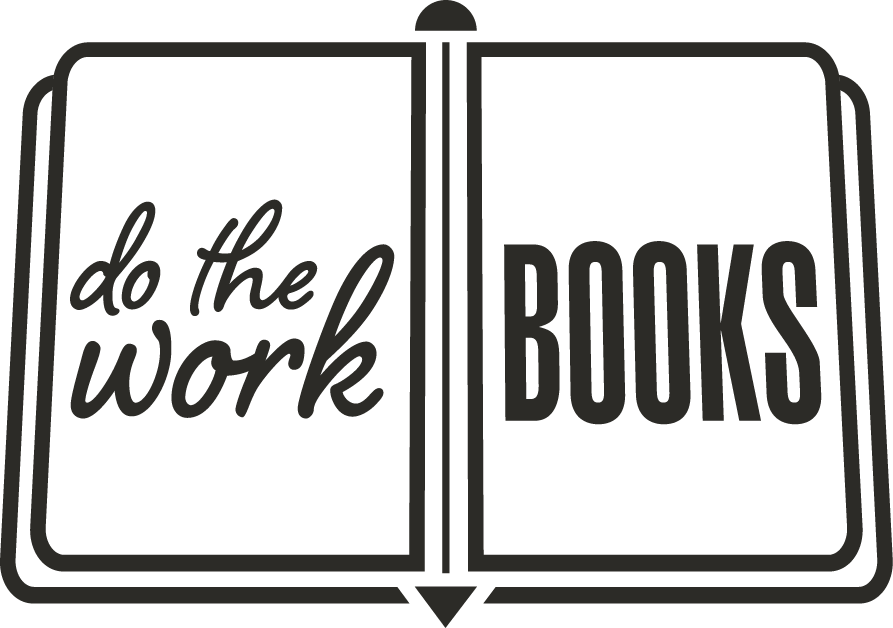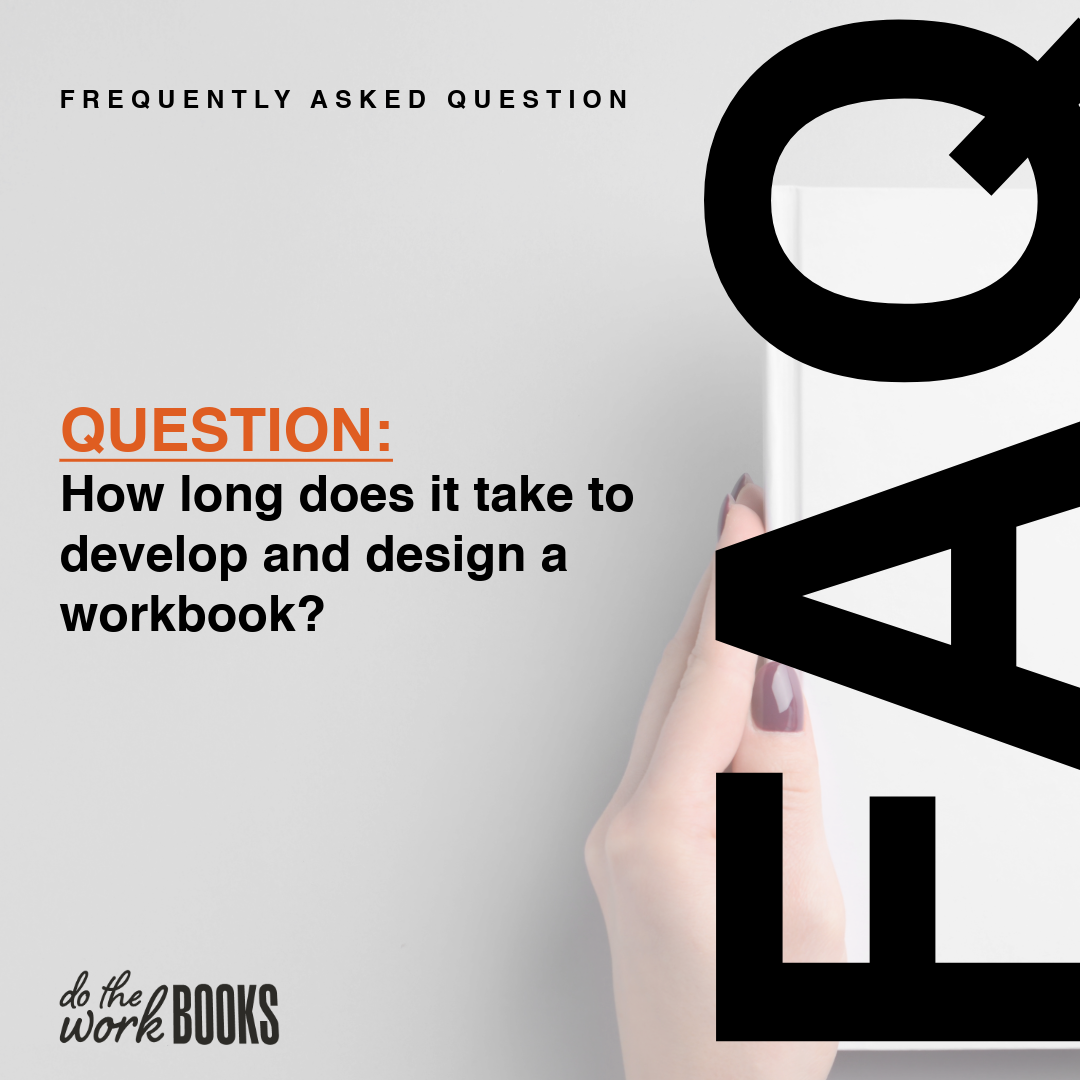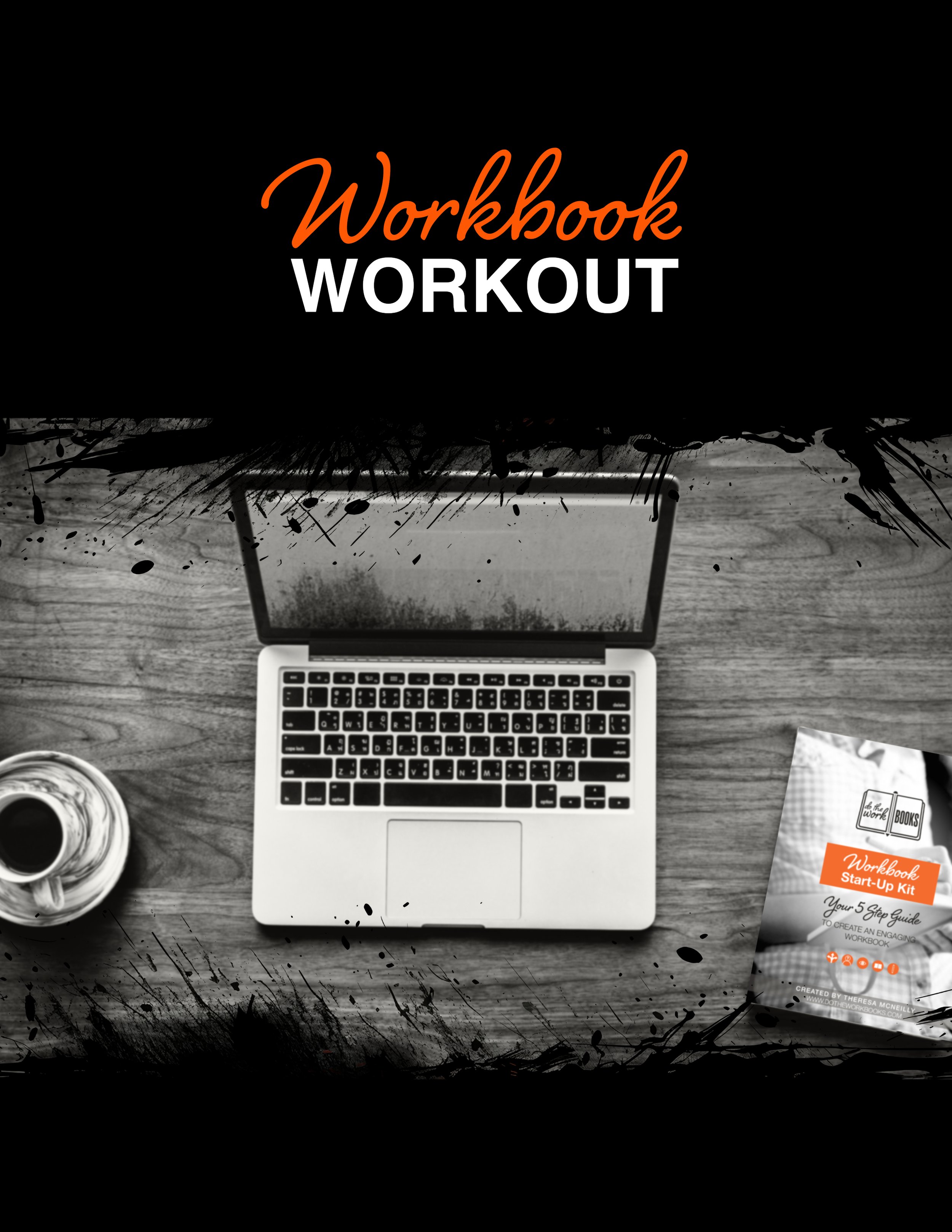Frequently Asked Questions
Since 2015, my world has been revolving around worksheets and workbooks. Obviously this doesn’t bother me one bit because I am still as passionate as ever putting pen to paper. Maybe even more so now that life seems to just getting busier and busier.
I have rounded up the most common questions I get asked about developing and designing workbooks.
Question #1
What is the best size to make my workbook?
When determining the size of your workbook, consider the practicality and readability for your readers. A common and versatile option is the standard letter size (8.5 x 11 inches), which provides ample space for content while remaining easy to use for desk or table work but not ideal for carrying around. Larger sizes may be suitable for workbooks requiring extensive writing space or areas for drawing or colouring. Alternatively, a smaller size like digest (5.5 x 8.5 inches) can be more portable and convenient for on-the-go use. Smaller sizes are ideal for quick note-taking or brief jotting. Ultimately, the ideal size will depend on the content and purpose of your workbook, so choose a size that aligns with the user experience you envision.
Question #2
How many pages should my workbook be?
My advice is to make your printed workbook over 100 pages long. The length will depend on the complexity of the content, the amount of exercises or activities included, and the overall purpose of the workbook. It's crucial to strike a balance between providing enough space for reflection and learning without overwhelming the users. Keep in mind that the length should be determined by how the participant will be using the workbook and the relevance of the material. For example, if the workbook will be used along side an online course or in-person workshop, then you might not need to include informational material that will be shared in your presentation. In this case only the worksheets can be included. However, if the workbook will be a stand alone item (if it is bought on Amazon or a local bookstore) it will be important to include information to back up, prepare or conclude the worksheets in your workbook. If your workbook does not have any context then it will feel incomplete and not motivate the participant to work through its pages.
Question #3
How long does it take to develop and design a workbook?
Completing a workbook can vary greatly depending on factors such as the complexity of the content, the author’s pace, and the amount of time dedicated to designing the worksheets. Developing and designing a workbook can vary in duration depending on the complexity of the content and the formatting requirements. On average, the process can take anywhere from a few months to a year. Initial planning stages, such as outlining the structure and content, can take several weeks depending on how much content is already prepared by the author. The actual design phase, including creating graphics and formatting the layout, may take another several weeks or months if additional editing and revising the workbook is required. Revisions can add additional time to the overall development process.
Question #4
Should I make my workbook in colour or black and white?
When deciding whether to make your workbook in color or black and white, consider the purpose and audience of the workbook. Color can enhance visual appeal, improve readability, and help differentiate sections or important information. It can be particularly effective for workbooks intended for a creative or a particularly visual audience focusing on design or aesthetics. On the other hand, black and white printing is typically more cost-effective and can still be impactful for workbooks that primarily contain text or simple graphics. Additionally, black and white workbooks may be preferred if the intended use involves printing it at home, as colour printing costs can add up. Ultimately, the choice between colour and black and white should align with the workbook's goals, target audience, and budget constraints.
Question #5
Do I need an ISBN for my workbook?
Whether or not you need an ISBN (International Standard Book Number) depends on your goals for the publication. If you intend to sell your workbook through retail channels, it is recommended to obtain an ISBN. This unique identifier helps in listing and selling your workbook in bookstores and online platforms. If it is a low content book (as defined on Amazon) you do not need an ISBN. If using a POD (Print On Demand supplier) they can supply you with an ISBN but it is recommended to get your own for complete ownership. If you are creating the workbook for internal use, such as within your organization or for a specific group of people in your course or for a digital workbook, an ISBN is not necessary. Consider your distribution and marketing strategy to determine if obtaining an ISBN is beneficial for your workbook.
*Canadian workbooks, ISBNs are free for Canadian authors and publishers!
Need support to work out your workbook?
This is for you.






